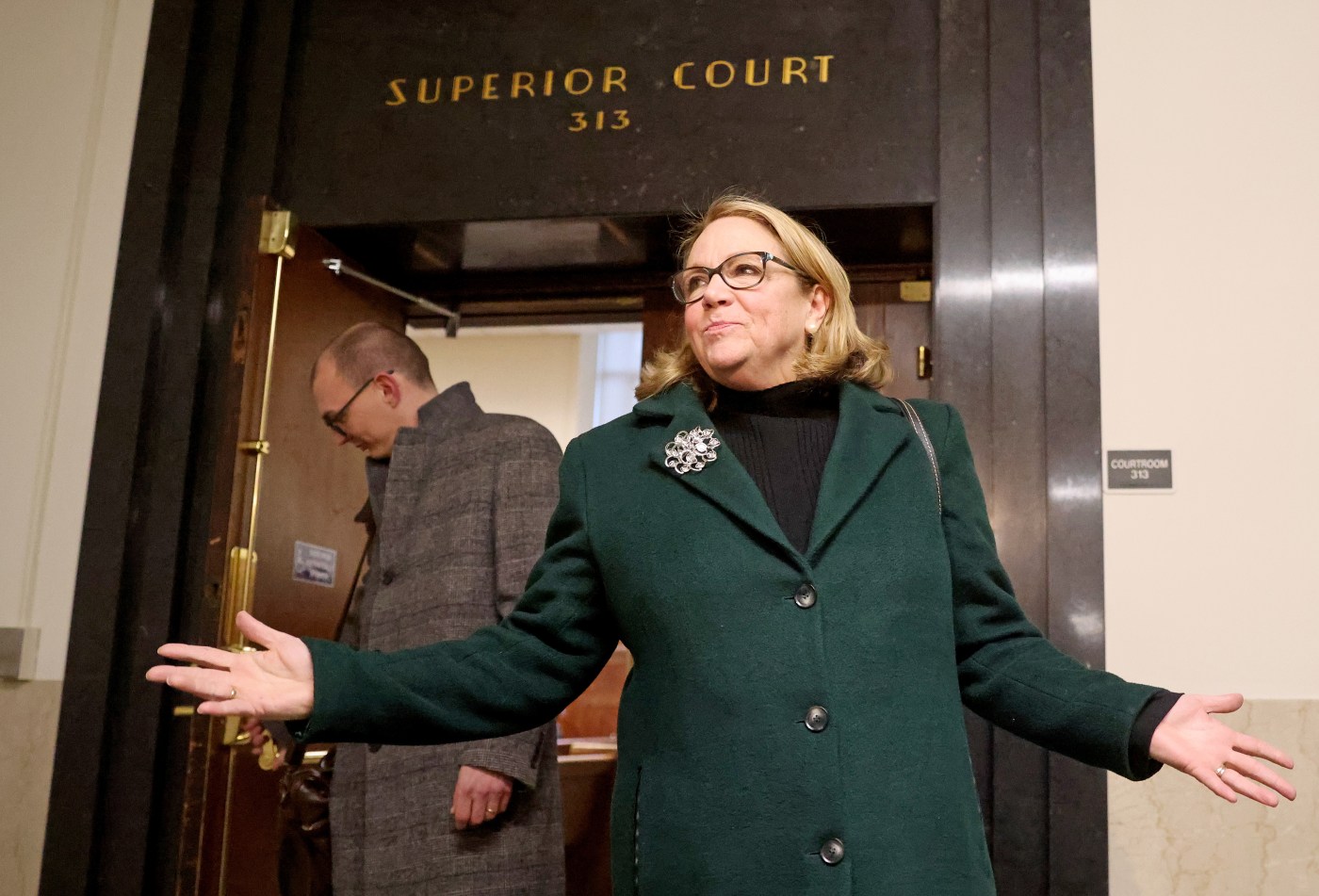
Who are you calling rudderless? Massachusetts cannabis regulator defends work on $7B industry
The agency regulating the marijuana industry is not “rudderless,” according to its acting chairwoman, and continues to work despite assertions that it needs a receiver in order to function.
“If you paid attention, we’re working. It’s always all hands on deck. We’re continuing to push policies,” Cannabis Control Commission Acting Chair Ava Callender Concepcion told the Herald in a one-on-one interview.
The legal marijuana industry in Massachusetts made $7 billion in sales last year, and $1 billion of that came back to the Bay State in the form of taxes and fees.
The industry, not even a full decade old, employs more than 15,000 licensed sales agents scattered across the state and is responsible for the creation of thousands of more jobs at the hundreds of adult recreational use and medical program dispensaries that the commission has vetted and approved through a lengthy and public process.
The CCC meets publicly and regularly, with their full-agenda meetings mostly conducted in the open. Only seldom, and at the advice of counsel, will commissioners retreat into executive session to conduct their business behind closed doors.
Those meetings produced the rules and regulations required by state law that govern a booming industry which, according to commissioners, is the envy of and model for other states looking to establish a similarly successful system.
Considering all of that, Concepcion told the Herald she was somewhat surprised to learn that the state’s Inspector General — tasked with finding waste, fraud, and abuse within the state’s sprawling government — examined the hard-at-work commission and found it “rudderless” and in immediate need of a receiver to run day-to-day operations.
According to Inspector General Jeffrey Shapiro, problems at the Commission tasked with regulating the still federally prohibited industry started to become apparent well before former Chair Shannon O’Brien was unceremoniously removed from her post and suspended — with pay — pending an investigation into racially charged remarks she allegedly made and working relationship with then-Executive Director Shawn Collins that is rumored to have been a poor one.
Since O’Brien’s suspension last year, which still has not been resolved, the agency has met under Concepcion’s acting leadership and without a full-time executive director. From the IG’s perspective, according to a statement he made to the Legislature, it looks like things are moving but no one is at the wheel.
“The Cannabis Control Commission is a rudderless agency without a clear indication of who is responsible for running its day-to-day operations,” Shapiro said. “Today I am asking legislative leaders to take immediate action to appoint a receiver and, in short order, address the underlying issues in the enabling statute so that the agency can function properly, maintain its budgeted revenue stream, and provide clarity and certainty for its stakeholders.”
He cited the “considerable time and money” the commission spent drafting a governance charter over two years and that it is no closer to finalizing that document.
According to Concepcion, the work to come up with the governance charter sought by the inspector general is underway and has been the entire time the commission has existed.
The process, which according to the IG’s report has produced no charter despite its $160,000 price tag, began under former Chair Steven Hoffman and continued though the interim chair that replaced him and then through Chair O’Brien’s brief tenure.
To complain about spending $160,000 over several years, especially considering the agency’s $23 million annual budget, and the pace of turnover at the top of the commission, seems very strange, Concepcion said. She highlighted that $2.5 million of the budget went unspent last year and was sent back to the state.
“You don’t know what’s happening from the outside looking in,” Concepcion said. “Just understand that we get the job done.”
The charter will be made available to the public at the Commission’s July meeting, she said, after months of effort on the part of commission staff to adjust under a shifting leadership landscape.
Concepcion, who was appointed by then-Attorney General Maura Healey, said that she sure doesn’t feel “rudderless” as she goes about her work. The acting chair said she will support whatever changes to the industry the Legislature decides may be necessary — as is their privilege — but for now, she doesn’t see the need or legal authority for the appointment of a receiver.
While the conversation about the commission’s direction is ongoing, Concepcion said, the staff at the CCC will continue moving forward, hard at their work overseeing the state’s largest cash crop.
“When I say we are doing the job and the industry is doing well, I mean we’re bringing a billion dollars a year to the commonwealth,” she said. “Massachusetts has always been the example. I think it’s important to think about the large picture here.”
Jeff hopes, right, of Plymouth, exhales marijuana smoke while celebrating 420, cannabis’ unofficial holiday, with friends on April 20 on Boston Common. (Photo by Paul Connors/Media News Group/Boston Herald)

